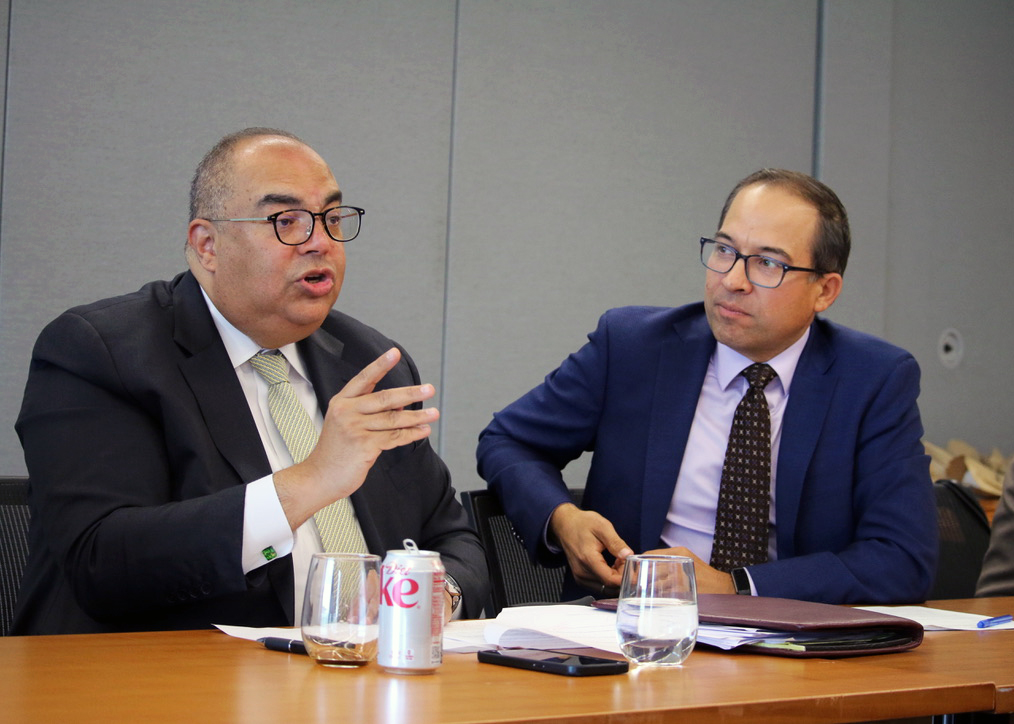What’s next for the Sharm El-Sheikh Adaptation Agenda?
By Kathleen Euler Tue, Dec 5, 2023
At COP27, the Sharm El-Sheikh Adaptation Agenda was launched as a plan with 30 goals designed to protect 4 billion people from the devastating impacts of climate change. Learn what the Agenda is and what we can expect from COP28.
What is the Sharm El-Sheikh Adaptation Agenda?
At COP27, the world recognized that progress on climate adaptation is falling behind the progress on mitigation. While both are urgently needed, the climate crisis is already here. Many frontline communities are already facing its deadly impacts.
The Sharm El-Sheikh Adaptation Agenda is a global commitment to not only to accelerate adaptation solutions but also the financing for them. Currently, only 16 percent of climate finance needs are met, according to the Rockefeller Foundation and BCG Research. The gap becomes even more clear when we turn to adaptation. Despite meaningful progress, developing countries need 10 to 18 times more funding. The current public finance flows are not enough to meet their adaptation targets.
These figures can become even more bleak when considering private finance mobilization. In 2019 and 2020, 39 percent of the almost $30 billion in climate finance for Africa went towards adaptation. However, only 3 percent of this funding came from the private sector.
Despite the clear gaps in funding, extreme heat is already the deadliest weather-related hazard and heat-related mortality has increased over the past decades. The Sharm El-Sheikh Adaptation Agenda is a clear signal that the world must prioritize the policies and financing that protect people from the effects of global warming.
Who are the UN Climate Champions?
The UN Climate Change High-Level Champions are climate leaders appointed each year for the UN Climate Conference. They connect the work of governments, organizations, and investors to accelerate climate resilience. In addition, the Champions spearhead the Race to Zero and the Race to Resilience.
The UN Climate Change High-Level Champions, the Marrakech Partnership, and several UN agencies supported the development of the Agenda. It is the first dedicated global plan for adaptation and resilience to outline actions for state and non-state actors.
The Agenda lists thirty global adaptation targets that aim to make 4 billion people more resilient. These targets were designed to accelerate transformation across five key impact systems: food and agriculture, water and nature, coastal and oceans, human settlements, and infrastructure.
From Sharm El-Sheikh to Dubai: The developing Agenda

As the world moves from Sharm El-Sheikh to Dubai, resilience and adaptation have become key priorities on the COP28 agenda. In the months leading up to the climate conference, the UN High Level Climate Champions advanced the Agenda. After extensive consultation, they identified the need to elevate health.
In response, they added four new outcomes for health and wellbeing. They developed guidance to ensure that health systems, first responders, and policymakers are better prepared to improve access to health services, especially during climate crises.
It is clear that the international climate resilience community is increasingly prioritizing health. In fact, for the first time in the conference’s history, COP28 has dedicated a thematic day to health.
The future of climate adaptation
Arsht-Rock has long recognized the urgent need for climate adaptation, a priority shared with the UN Climate Change High Level Champions.
“Mitigation is something only the privileged can discuss, whilst the majority of the world doesn’t have that [option],” explained H.E. Razan Al Mubarak, Climate Champion for COP28. Frontline communities are forced to adapt to climate change. To better protect them, the public and private sectors must collaborate to co-deliver the investments and the solutions that respond to the threat of climate-driven extreme heat.
In partnership with the UN Climate Change High-Level Champions, Arsht-Rock developed a series of roundtable discussions. Representatives from the banking, investment, finance, and insurance sectors were invited to share their insights and recommendations. These meetings helped identify opportunities for the public and private sectors to collaborate and scale support, policies, and financing for climate adaptation.
The Sharm El-Sheikh Adaptation Agenda is a powerful start to a new way forward. It is “one of the most fundamental advances in international negotiations on adaptation over the past decade,” says Jorge Gastelumendi. By mapping clear actions for investors, implementing partners, and governments, the Sharm El-Sheikh Adaptation Agenda is a beacon for the climate resilience community and frontline communities.
